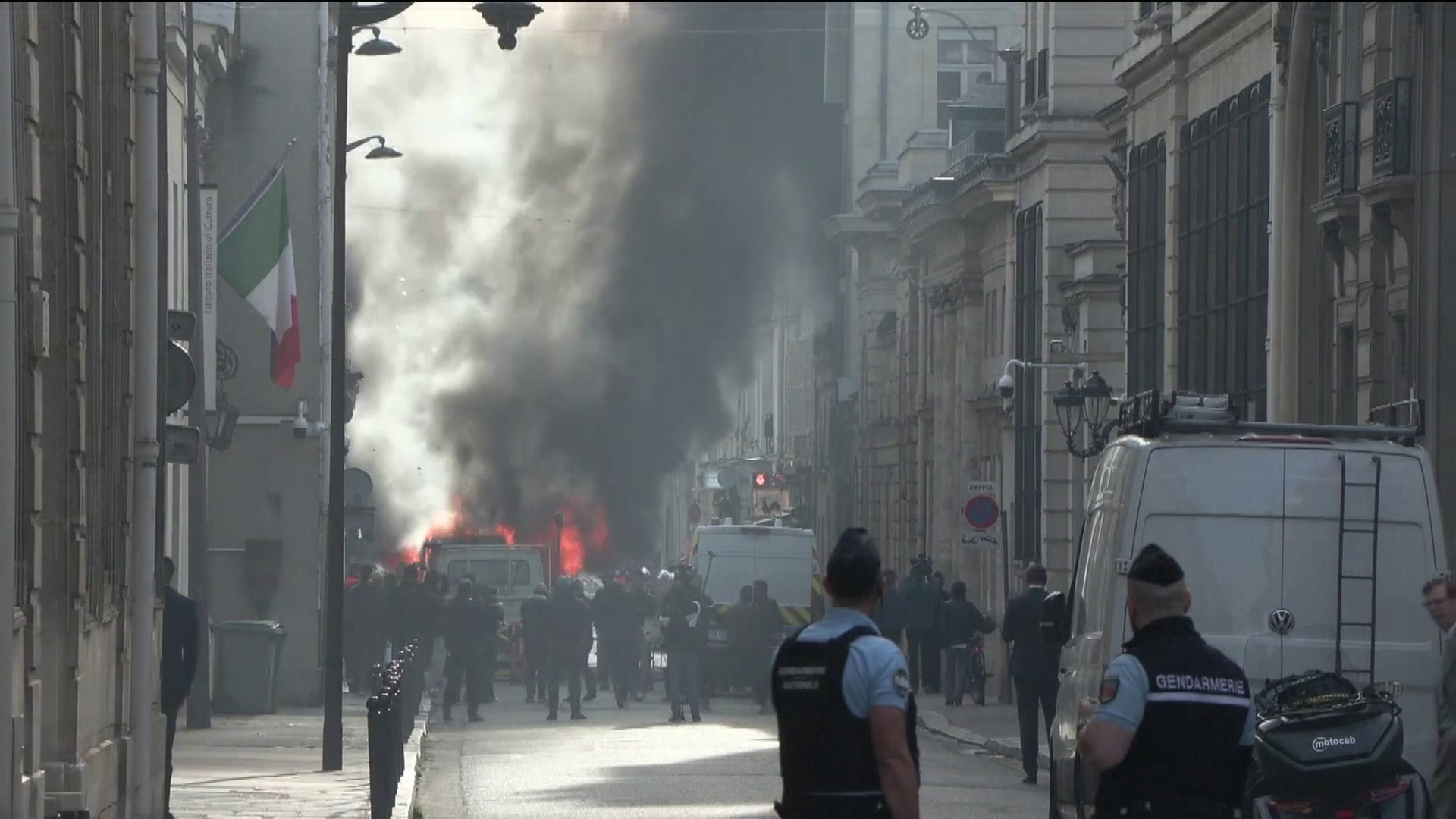Political Turmoil in France Following Lecornu’s Resignation and Coalition Shifts
Following Prime Minister Sébastien Lecornu's resignation, France faces a political crisis marked by coalition breakup, ongoing negotiations, and leadership challenges.
- • Prime Minister Sébastien Lecornu meets coalition leaders amid crisis at Matignon.
- • Les Républicains withdraws from government, ending the 'socle commun' alliance.
- • Bruno Retailleau signals ongoing negotiations but marks a clear distinction from Macron's central bloc.
- • Questions rise about administration of governmental duties after Lecornu's cabinet resignation.
- • Gabriel Attal opposes calls for President Macron's resignation, emphasizing democratic stability.
Key details
On October 7, 2025, France is facing a significant political crisis following the resignation of Prime Minister Sébastien Lecornu and his government. Lecornu is currently engaging in crucial discussions at Matignon with various party leaders and coalition heads, including Yaël Braun-Pivet and Gérard Larcher, under the directive of President Emmanuel Macron, aiming to restore stability and establish a coherent action platform amid the turmoil. Concurrently, a literal fire near Matignon, where smoke has filled the area, serves as a stark metaphor for the heated political atmosphere enveloping the government (ID 90312).
This crisis stems largely from the withdrawal of Les Républicains (LR) from the government coalition, which precipitated the collapse of Lecornu's administration. Following this, Bruno Retailleau, president of LR, announced the official retirement of the term "socle commun," which had denoted the alliance between Macron’s camp and LR. Retailleau emphasized the distinction between the "central bloc" and LR, while indicating that although LR’s exit marks a rupture, negotiations remain open for future right-wing participation in government. He is set to engage in private talks with Lecornu to finalize discussions mandated by President Macron (ID 90378).
In the interim, questions loom about the governance of current affairs given the resignation of the Lecornu cabinet. Reports highlight concerns about management of ongoing governmental duties and the benefits accorded to outgoing ministers during this transitional phase (ID 90324).
On another front, Gabriel Attal, leader of the Renaissance deputies, has publicly opposed calls for President Macron's resignation, which some opposition figures like Edouard Philippe have implied. Attal argues such demands threaten democratic stability and undermine the legitimacy of the elected president (ID 90425).
As political leaders negotiate and position themselves amid this crisis, the nation watches closely how these developments will shape France’s governance and political future.
This article was translated and synthesized from French sources, providing English-speaking readers with local perspectives.
Source articles (4)
Source comparison
Latest news
Middle East Conflict Sparks Surge in French Fuel Prices Amid Supply Concerns
Macron Announces Major Shift in France's Nuclear Policy with Increased Arsenal and European Integration
French Government Prioritizes Safety of Nationals Stranded Amid Middle East Conflict
French Prisons Reach Record Overcrowding with 86,645 Inmates as of February 2026
Pau's Local Election Campaign Gathers Momentum Amid Broader Political and Economic Concerns
French Companies and Regions Accelerate Efforts in Nature-Related Economic Transition
The top news stories in France
Delivered straight to your inbox each morning.



